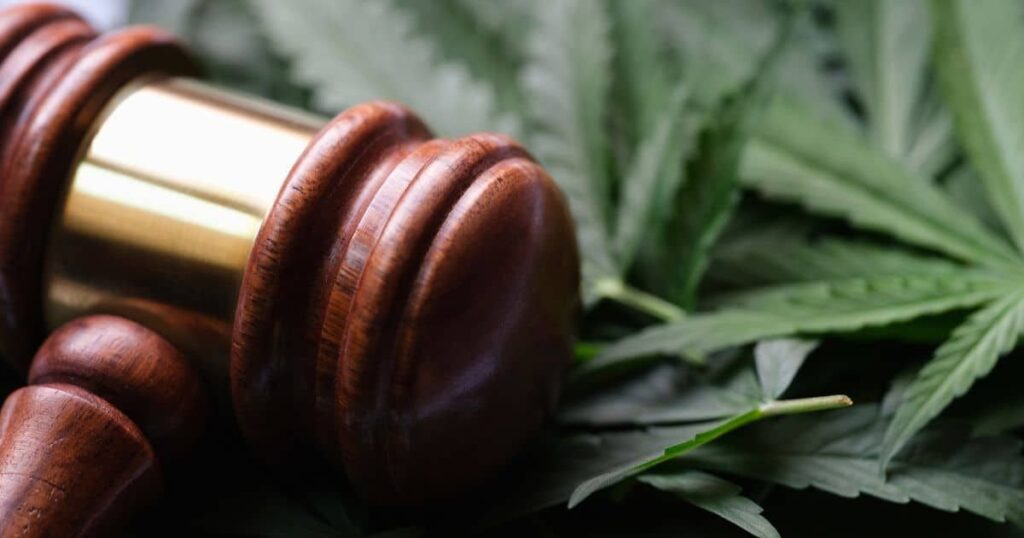The question of federal marijuana rescheduling in the United States has lingered for quite some time now, often associated with broken political promises and bureaucratic delays. Former Congressman Matt Gaetz (R-FL), in a recent op-ed on the Tampa Bay Times, reignited the debate by stating that “meaningful change” is “finally on the horizon” with the reclassification of cannabis from a Schedule I drug to a Schedule III drug, under the influence of President Donald Trump. But is this rooted in tangible progress, or does it represent more political rhetoric in a long line of stalled promises?
Federal Marijuana Rescheduling as a Talking Point?
Matt Gaetz, who served as Trump’s first pick for Attorney General before withdrawing amid alarming allegations, has aligned himself with the notion that cannabis laws should be “rooted in science, not stigma.” He has backed marijuana reform efforts in the past, even when these stances were considered atypical in conservative circles. This recent op-ed continues that narrative, with Gaetz praising Trump’s supposed “leadership” in backing the rescheduling of cannabis.
Gaetz’s argument pushes the notion that reclassifying cannabis as a Schedule III substance is a necessary step towards meaningful reform. This shift would finally acknowledge marijuana’s medical benefits, ease restrictions on scientific research, and even provide businesses with greater tax and regulatory relief. To Gaetz, this change is framed as a pragmatic, modest reform that benefits patients, businesses, and veterans alike. However, missing from Gaetz’s reflection is the broader administrative timeline that led to this discussion.
It’s crucial to note that former President Joe Biden initiated the federal marijuana rescheduling review process—an effort that federal agencies have since supported. While Trump publicly backed rescheduling during his 2024 campaign, this stance appears only tangentially related to the process already underway under his administrative predecessors.
Trump’s Federal Marijuana Rescheduling Stance in Office
While Gaetz’s op-ed generously credits Trump as a reformist on marijuana issues, Trump’s actual record shows inconsistencies. On the campaign trail, Trump briefly embraced cannabis-related policy changes, including advocacy for marijuana industry banking access and expanded legalization in Florida. However, since reclaiming the White House, Trump has stayed noticeably silent on the matter, leaving many uncertain about his follow-through.
Even more concerning is that Trump has chosen key appointees to lead federal cannabis-related policies. After Gaetz withdrew from consideration as Attorney General, Trump nominated Pam Bondi, a former Florida attorney general who has been noncommittal on the topic of marijuana rescheduling. Bondi’s past also includes opposition to legalizing medical cannabis in her home state, fueling questions about her willingness to champion reform as the frontrunner of the Department of Justice.
Compounding this uncertainty is Trump’s nominee to lead the Drug Enforcement Administration (DEA), Terrance Cole. Well-documented as a critic of cannabis, Cole has voiced concerns about marijuana’s potential risks, particularly among youth populations. With two key figures at the helm who exhibit apprehension—or outright opposition—toward cannabis reform, Gaetz’s optimism about “meaningful change” under Trump appears increasingly questionable.
Recheduling is a Step Forward, But How Significant?
Rescheduling cannabis from Schedule I to Schedule III holds promise, but it is far from the radical, comprehensive reform that some advocates envision. While such a change would lower the current barriers restricting cannabis research and medical usage, cannabis would remain a controlled substance. This means federal oversight of production, distribution, and taxation would persist, and, quite frankly, would likely cause even more regulatory hurdles and struggles for those in the cannabis industry if the federal government got its hands on it.
Proponents of rescheduling often highlight its financial implications for the cannabis industry. Currently, state legal marijuana businesses face high federal taxes due to Internal Revenue Service code 280E, which prohibits businesses dealing in Schedule I or II substances from deducting ordinary expenses like rent or payroll. Reclassifying cannabis would theoretically eliminate this penalty, allowing these companies to have write-offs in a more equitable fiscal landscape.
However, critics maintain that rescheduling alone does little to address bigger issues of cannabis criminalization or the disproportionate enforcement of drug laws targeting marginalized communities. For full reform to happen, we here at Beard Bros firmly believe that cannabis prohibition must end, cannabis should be fully legalized, and it must be removed from the Controlled Substances Act.
Where Does This Leave Us?
The path to federal marijuana rescheduling is currently unclear. Trump’s public statements on the topic have decreased, and without a strong mandate from the administration, doubts remain about the sincerity of commitments to reform. Bureaucratic delays further progress, as hearings related to rescheduling proposals have stalled under challenges at the DEA. There is speculation that federal agencies—and the current Trump administration—are grappling with internal disagreements over the initiative.
Matt Gaetz’s framing of Trump as a marijuana reform leader in his op-ed seems strategically aimed at messaging more than action. It is worth questioning his motivations in this regard—both for championing rescheduling as a standalone reform and for omitting Biden’s role in starting the review process.
Investors, patients, and advocates in the cannabis industry remain optimistic, but the federal government’s slow and inconsistent approach to meaningful drug policy reform tempers their hope. While the potential benefits of rescheduling for research, business sucess, and patient access are undeniable, the divided opinions within Trump’s appointees hint that future actions may not mirror the forward-thinking rhetoric presented by Trump during his campaign—or by vocal supporters like Gaetz.
For now, those interested in federal marijuana reform should stay locked in. Whether this issue advances or hits further delays depends largely on pressure from advocates, the cannabis community, and legislators to hold leadership responsible for turning promises into action. Until concrete changes unfold, the federal marijuana rescheduling process remains unsettled, hovering somewhere between political leverage and systematic reform.
















